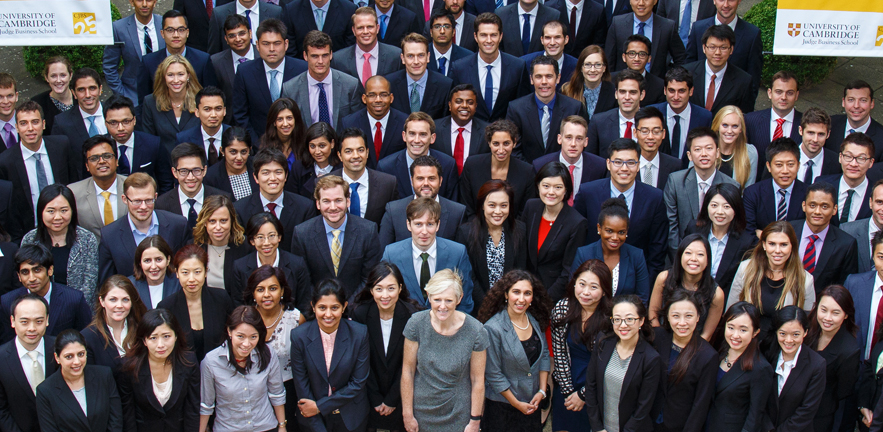
In July, we welcomed more than 260 of our alumni back to Cambridge to mark the 25th anniversary of Cambridge Judge Business School. It was a chance to renew acquaintances, celebrate our achievements and look back at what has made us such a distinctive centre of learning. And now it’s perhaps time to shift our focus to the next 25 years – in fact, I’ll chance my arm and say 50 years – and consider how our role in society is likely to evolve.
In a world with a still-rising population, scarcer resources and a looming threat of disruptive climate change, we will have to learn as a society how to do more with less. This will hold true globally and at the level of governments, public bodies and businesses, right down to the individual.
The only way to achieve this is through innovation. Indeed, I teach a module in our Advanced Leadership Programme twice a year, discussing with senior managers how they can harness the innovation capability of their firms in order to get from a defensive stance (“how do we comply?”) to a proactive stance (“how can we distinguish ourselves in the eyes of our customers in our relationship with society and the environment?”). Innovation, as well as understanding the changing contract between business and society (in other words, a broad understanding of ethics) should be taught and it ought to sit at the very centre of every business school’s mission. We will be carrying out our duty to society only if we help organisations discover how to innovate.
Long before 50 years have passed, the domain in which we do business will have seen some profound changes. We will have to adapt to a new financial system that will no longer be dominated by the banks. Other institutions, such as telecoms companies that allow people to hold money on mobile devices, will share their function of providing credit and making transactions. At the moment we speak of “alternative finance” but it will have migrated from the fringes of business to join the mainstream.
Our own “industry” will profoundly change, as we will learn how to communicate with our students not only face-to-face but also via eye-to-eye contact online and through pedagogical modules that will teach knowledge in ways that are not “standardised” but even more personalised than classroom teaching. Classroom teaching will become only one aspect of an integrated teaching approach that will be more powerful than what we do today.
We can likewise expect a revolution in economics, thanks to digitisation and advances in manufacturing. Capabilities such as 3D printing are already beginning to totally change how products are made and sold. Rather than relying upon large central facilities, manufacturing may take place in the village, the office or even the home. Big data and digitisation will radically change business models, leading to the possibility of individualised offers, using resources only when necessary rather than buying and “hogging” them, and sharing assets (you can already rent out your house when on vacation). New business models will create new markets, new providers and also some losers – those who will not adapt and end up disappearing.
These topics will produce some disruptors over the coming 50 years – and I am sure that there will be more. But I’m confident that some things at Cambridge Judge will remain remarkably familiar. We will still be a research-driven, multidisciplinary School at the heart of one of the world’s great universities. And I’m sure that we will continue to perform a vital entrepreneurial role, bringing the gap between academia and business. So here’s to 2065 – and many happy returns.


Leave a Reply